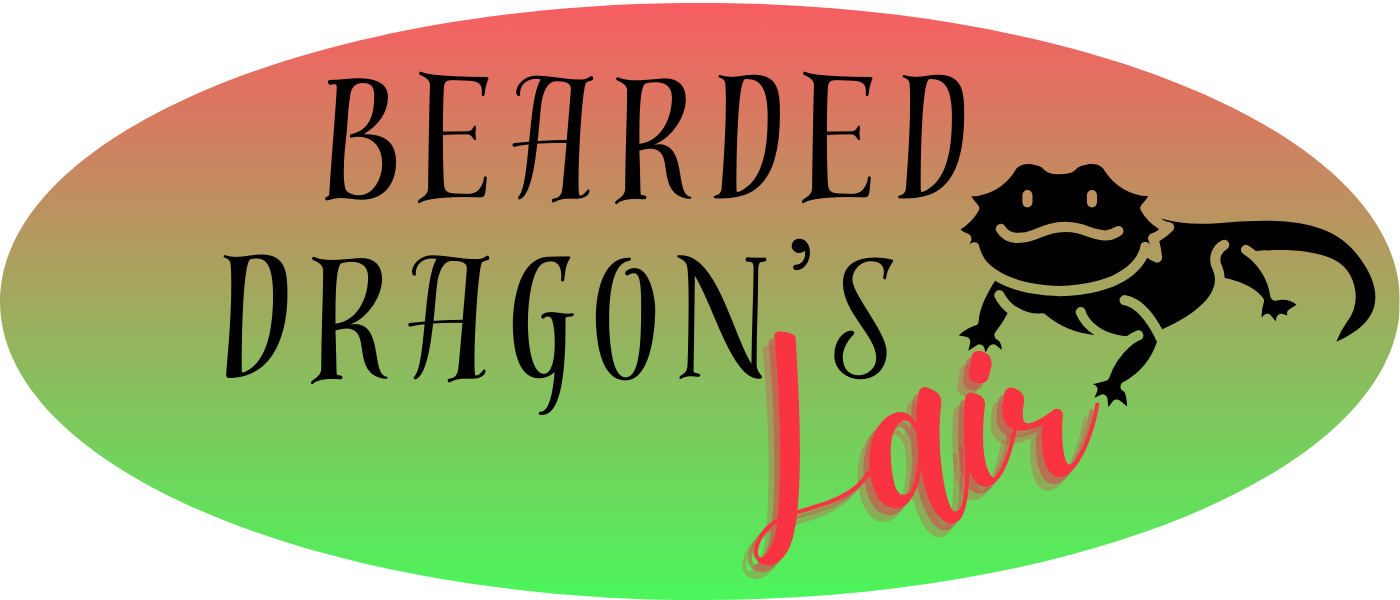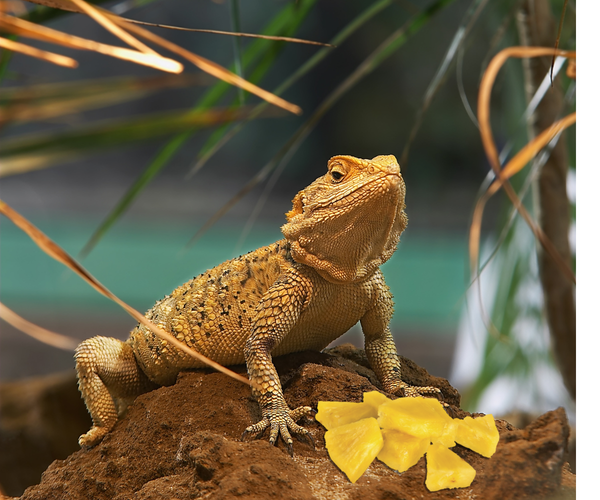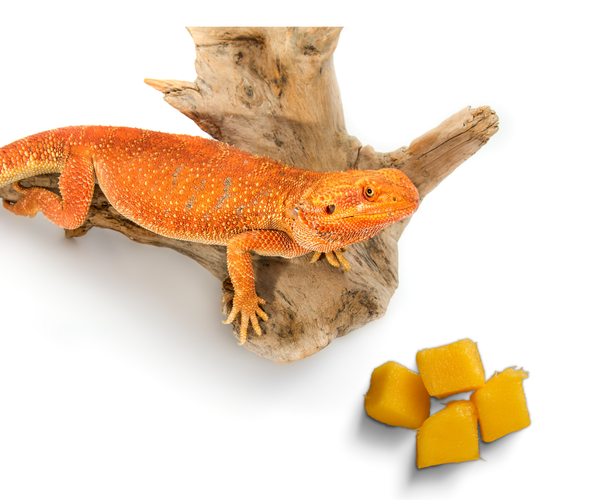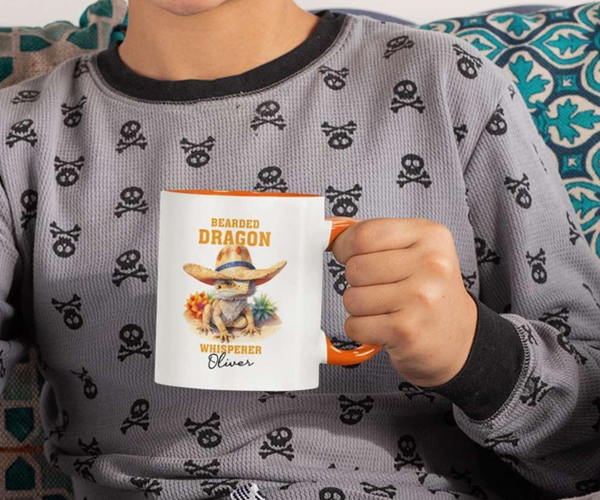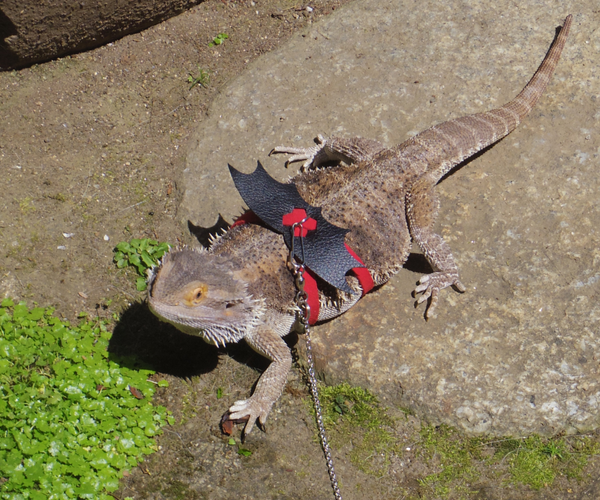Can Bearded Dragons Eat Mushrooms?
While some mushrooms can be non-toxic to bearded dragons, they do not provide significant nutritional value for these reptiles and can pose health risks if consumed in large quantities.
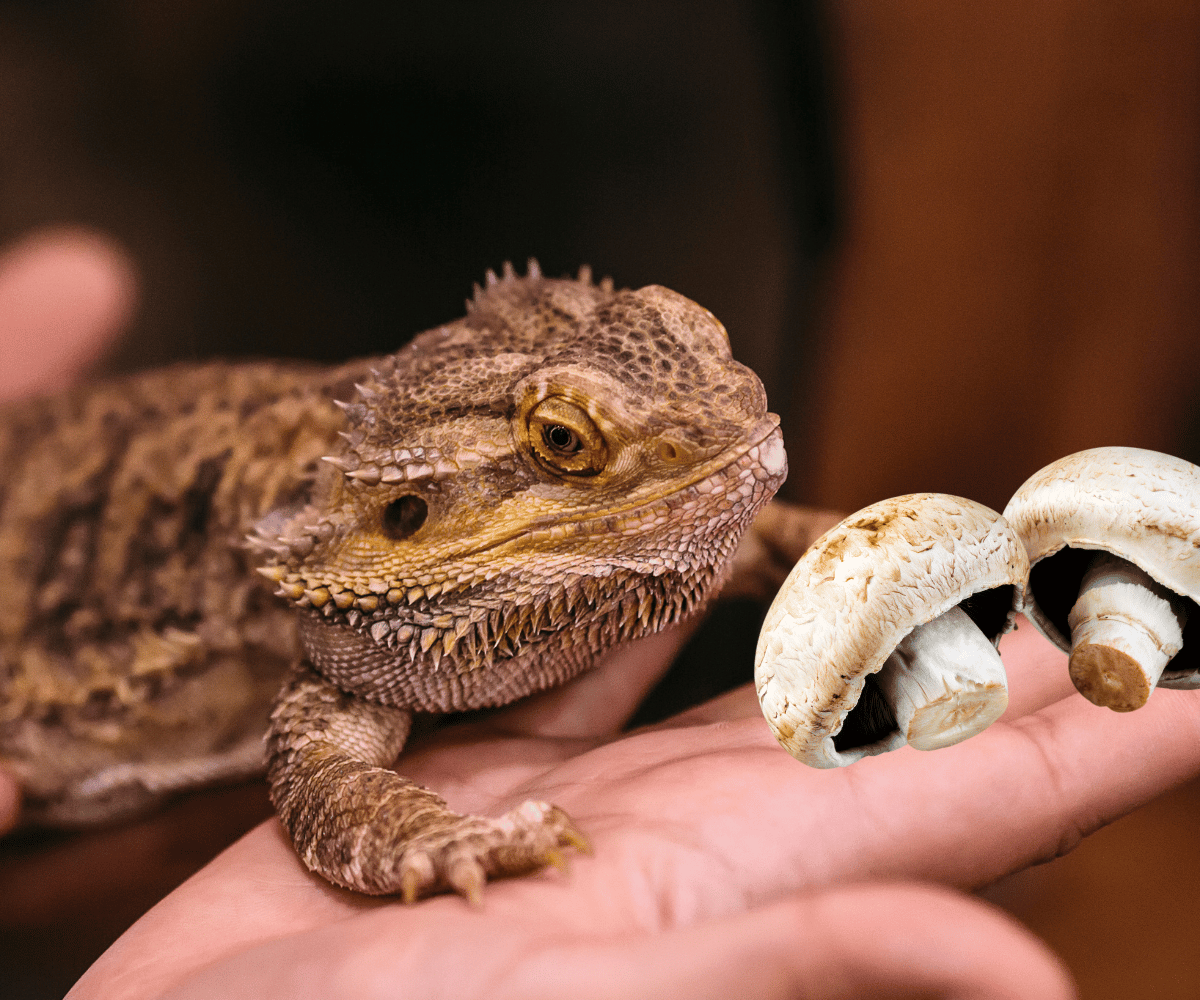
Key Takeaways:
- Bearded dragons can consume certain types of mushrooms, but they should be offered sparingly due to potential health risks.
- It's essential to understand which mushrooms are safe and how to prepare them properly for your bearded dragon.
- Regular veterinary check-ups and a balanced diet are crucial for the health and well-being of your bearded dragon.
Mushrooms, a common staple in human diets, may come to mind as a potential food item for bearded dragons. But can bearded dragons eat mushrooms safely? This article delves into the details of incorporating mushrooms into a bearded dragon's diet.
Understanding Bearded Dragons' Dietary Needs
Bearded dragons are omnivorous creatures, which means they thrive on a mix of plant-based and animal-based foods. In the wild, their diet consists of insects, small animals, and a variety of fruits and vegetables. Captive bearded dragons should have a diet that mimics this natural variety to ensure they receive all the necessary nutrients for optimal health.
The Nutritional Profile of Mushrooms
Mushrooms are known for their nutritional benefits in the human diet, including being a source of vitamins, minerals, and antioxidants. However, the nutritional needs of bearded dragons are quite different from humans. While some mushrooms can be non-toxic to bearded dragons, they do not provide significant nutritional value for these reptiles and can pose health risks if consumed in large quantities.
Safe Mushrooms for Bearded Dragons
If you decide to feed mushrooms to your bearded dragon, it's crucial to choose safe varieties. Common edible mushrooms like button, portobello, and cremini are generally considered non-toxic. However, they should be offered in moderation and as part of a balanced diet.
Preparing Mushrooms for Your Bearded Dragon
When offering mushrooms to your bearded dragon, they should be thoroughly washed to remove any pesticides or contaminants. It's best to serve them raw or lightly cooked without any added oils, spices, or seasonings. Cut the mushrooms into small, manageable pieces to prevent choking hazards.
Frequency and Portion Size
Mushrooms should be treated as an occasional treat rather than a staple in your bearded dragon's diet. A small piece of mushroom once every few weeks is sufficient. Overfeeding mushrooms can lead to digestive issues and nutritional imbalances.
Potential Health Risks of Mushrooms
Some mushrooms contain compounds that can be harmful to bearded dragons, leading to gastrointestinal distress or more severe health issues. It's also important to note that wild mushrooms can be extremely toxic and should never be offered to your pet.
Alternatives to Mushrooms in a Bearded Dragon's Diet
There are many other vegetables and fruits that are safer and more nutritionally beneficial for bearded dragons. Leafy greens like collard, mustard, and dandelion greens, as well as squash, bell peppers, and certain fruits, can be included in their diet for variety and nutrition.
The Importance of a Varied Diet
A varied diet is key to providing your bearded dragon with all the necessary nutrients for a healthy life. In addition to safe vegetables and fruits, bearded dragons need a regular supply of live insects, such as crickets and mealworms, which are vital sources of protein.
Monitoring Your Bearded Dragon's Health
Regular veterinary check-ups are essential to monitor your bearded dragon's health and dietary needs. If you notice any changes in behavior or health after introducing new foods, including mushrooms, consult your veterinarian immediately.
Creating a Balanced Diet Plan
Consulting with a reptile nutritionist or veterinarian can help you create a balanced diet plan for your bearded dragon. This plan should prioritize foods that meet their specific nutritional requirements while avoiding those that pose health risks.
Summary
While bearded dragons can eat certain types of mushrooms, they should only be offered as an occasional treat and in small quantities. Mushrooms do not provide significant nutritional value for bearded dragons and can pose health risks if not chosen and prepared correctly. It's essential to focus on providing a varied and balanced diet that meets the nutritional needs of your bearded dragon, with regular veterinary check-ups to ensure their overall health and well-being.
FAQ Section
Q: Can bearded dragons eat any type of mushroom? A: No, bearded dragons should only eat certain non-toxic varieties of mushrooms, such as button, portobello, and cremini, and even these should be given sparingly.
Q: How often can I feed mushrooms to my bearded dragon? A: Mushrooms should be an occasional treat, not a regular part of their diet. A small piece once every few weeks is enough.
Q: What should I do if my bearded dragon eats a wild mushroom? A: If your bearded dragon consumes a wild mushroom, seek veterinary care immediately, as many wild mushrooms can be toxic and pose serious health risks.
